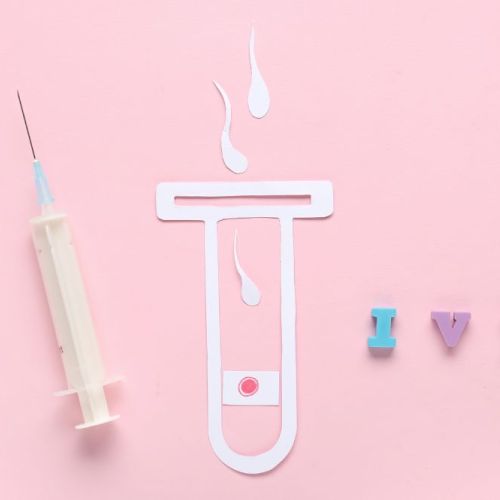What Does Preimplantation Genetic Screening Test For?

Some couples have an easy time conceiving, while others do not. Often, infertility is the cause. It is a fairly common cause and is diagnosed after a couple fails to conceive after one year of having sex without using any contraception. The good news is that with advances in technology, known as assisted reproductive technology, many infertile couples go on to have happy, healthy babies.
Common causes of infertility
Some common causes of infertility include the following:
- Low sperm counts
- Issues with ovulation
- Issues with uterus or Fallopian tubes
- Failure of sperm to thrive in cervical mucus
- Diminished egg quality
- Genetic disease in either potential parent
In vitro fertilization
In vitro fertilization is a form of assisted reproductive technology that helps couples conceive a healthy baby. The in vitro fertilization process includes medication to stimulate production of eggs, which are then fertilized with sperm in a lab. Once the eggs are fertilized, the resulting embryo or embryos are then placed inside the woman’s uterus.
The outcomes of in vitro fertilization vary from situation to situation. Many women carry several babies to term, because more than one embryo was implanted inside her. Sometimes, the process may take several cycles for the potential mother to carry the baby to term. Moreover, the age and cause of infertility may result in a negative outcome.
What is preimplantation genetic testing?
Preimplantation genetic testing is one additional tool a fertility specialist has to help ensure the birth of a healthy baby. Preimplantation genetic testing is the process by which an embryo is tested for different diseases or to ensure that the embryo is healthy. Embryos can also be tested for chromosomal abnormalities. Preimplantation genetic testing can even help determine whether parents are likely to pass on harmful genes to their child. The end goal is always to help prospective parents deliver healthy babies.
How does preimplantation genetic testing work?
Early in the developmental process of the embryo, our team will collect a few cells and send them off for testing. These cells are analyzed to determine if any genetic abnormalities are present. If the embryo doesn’t have any genetic abnormalities, it will then be implanted into the mother in the hopes of a successful birth.
It is important for prospective parents to partner with experienced fertility physicians to ensure healthy outcomes. The physicians at the California Center for Reproductive Health have both the qualifications and the track record to help you overcome your infertility issues. We have five offices located in Southern California to help you. Please give one of our offices a call to schedule an appointment today.
Eliran Mor, MD
Reproductive Endocrinologist located in Encino, Valencia & West Hollywood, CA
FAQ
What does a reproductive endocrinologist and infertility specialist do?
Reproductive endocrinology and Infertility is a sub-specialty of Obstetrics and Gynecology. In addition to managing medical and surgical treatment of disorders of the female reproductive tract, reproductive endocrinologist and infertility (REI) specialists undergo additional years of training to provide fertility treatments using assisted reproductive technology (ART) such as in vitro fertilization.
Reproductive endocrinologists receive board certification by the American Board of Obstetrics and Gynecology in both Obstetrics and Gynecology and Reproductive Endocrinology and Infertility.
When should I see an REI specialist?
In general, patients should consider consulting with an REI specialist after one year of trying unsuccessfully to achieve pregnancy. The chance of conceiving every month is around 20%, therefore after a full year of trying approximately 15% of couples will still not have achieved a pregnancy.
However, if a woman is over the age of 35 it would be reasonable to see a fertility specialist earlier, typically after 6 months of trying.
Other candidates to seek earlier treatment are women who have irregular menses, endometriosis, fibroids, polycystic ovary syndrome (PCOS), women who have had 2 or more miscarriages, or problems with the fallopian tubes (prior ectopic pregnancy).
What are the reasons we are having trouble conceiving?
Approximately 1/3 of the time cause for infertility is a female factor, 1/3 of the time a male factor, and the remaining 1/3 a couples’ factor.
At CCRH, we emphasize the importance of establishing a correct diagnosis. Both partners undergo a comprehensive evaluation including a medical history and physical exam.
Furthremore, the woman’s ovarian reserve is assessed with a pelvic ultrasound and a hormonal profile. A hysterosalpingogram (HSG) will confirm fallopian tube patency and the uterine cavity is free of intracavitary lesions. A semen analysis is also obtained to evaluate for concentration, motility, and morphology of the sperm.
Additional work up is then individualized to direct the best possible treatment option for each couple.
What is IVF? What is the process like?
In vitro fertilization (IVF) is the process that involves fertilization of an egg outside of a woman’s body.
The process starts with fertility drugs prescribed to help stimulate egg development. In your natural cycle, your body is only able to grow one dominant egg, but with stimulation medication we can recruit multiple eggs to continue to grow. After about 8-10 days of stimulation, the eggs are surgically retrieved and then fertilized with sperm in a specialized laboratory. Fertilized eggs are then cultured under a strictly controlled environment within specialized incubators in the IVF laboratory for 3-5 days while they develop as embryos. Finally, embryos (or an embryo) are transferred into the uterine cavity for implantation.
Should I have IVF?
Before deciding if IVF is the right choice, it’s important to sit down with an REI specialist to discuss available treatment options. For some people, other methods such as fertility drugs, intrauterine insemination (IUI) may be the best first choice treatment. At CCRH, we believe each individual couple is unique and not everyone needs IVF.
Is the IVF procedure painful?
While not painful, the fertility medications may some side effects including headaches, hot flashes, mood swings, and bloating. The injection sites may also bruise.
Will IVF guarantee a baby?
Unfortunately, no. Many people think once they start IVF it’s a matter of time that they will be pregnant and have a baby. But according to national statistics per the Society of Assisted Reproduction (SART), on average 40% of assisted reproduction cycles achieve live births in women under age 35. The chances of success then continue to decrease with advancing age.
At CCRH, we employ only evidence-based interventions to ensure patient safety and optimal outcome. While we cannot guarantee a baby, we guarantee that you will receive the best, most advanced, personalized care to help you maximize your chance of a baby.
What is the success rate for IVF?
The average IVF success rate (success measured in live birth rate) using one’s own eggs begins to drop around age 35 and then rapidly after age 40. This is due to the decline in egg quantity and egg quality as a woman ages.
Our clinic’s success rate consistently beats the national average year after year.
Do insurance plans cover infertility treatment? How much does IVF cost?
Individual insurance plans often do not have any coverage for infertility treatments. If you have a group plan, you can call members services to see if they have coverage for infertility (including consultation/workup and IVF).
After your consultation with our REI specialist, one of our dedicated account managers with sit with you to go over the cost of treatment.




